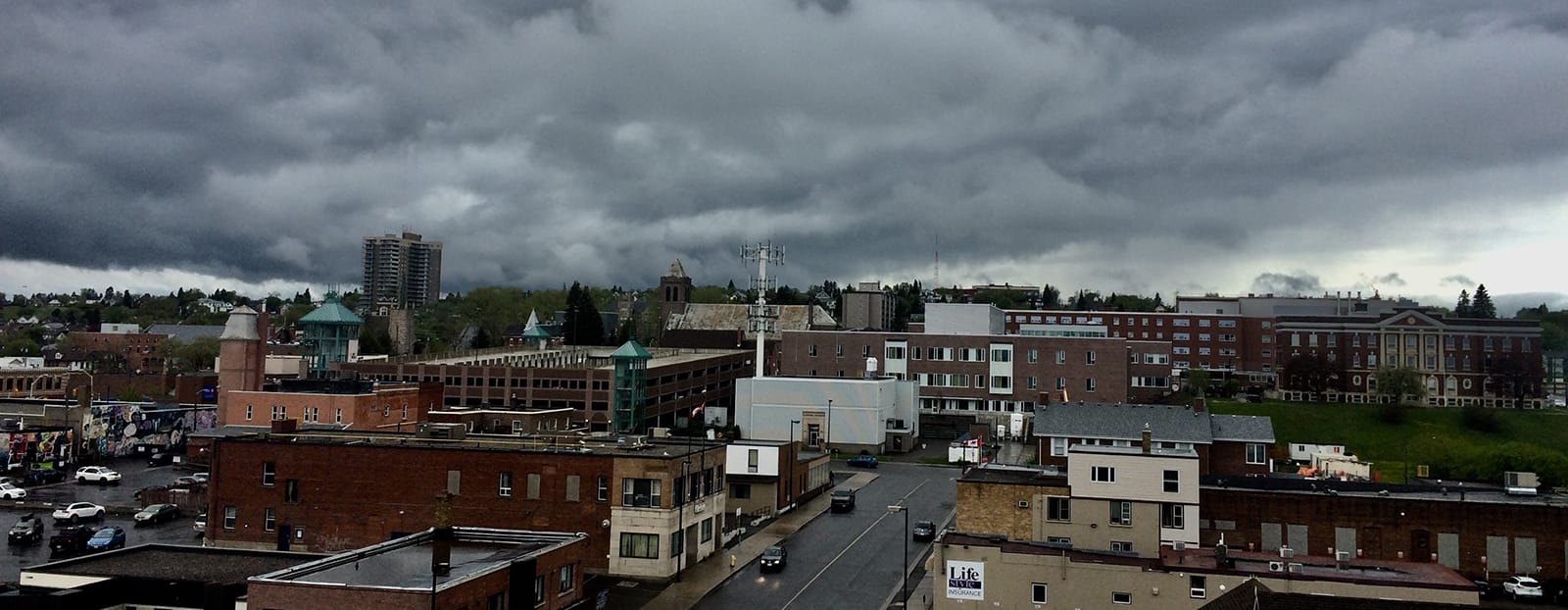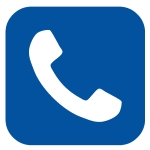During a winter storm you may be without basic utilities for a long period of time. It is up to you to prepare yourself with an emergency kit. Use the Emergency Preparedness Guide to help you or the Government of Canada Emergency Preparedness Guide for People with Disabilities for those with special needs.
Make sure your family Emergency Plan includes all your family members - pets included. Also think about how the seniors in your life would fare in a severe-weather emergency. Prepare ahead to improve their safety. Consider a gift of an emergency preparedness kit (covering all their basic needs for 72 hours). Visit the local Red Cross office for ideas.
In Thunder Bay, major winter storms and power outages, tornadoes, chemical or toxic spills, forest fires, floods, explosions, and transportation accidents are examples of emergencies we may face.
Thunder Bay is committed to emergency planning. Thunder Bay's Emergency Planning Team ensures that municipal emergency plans and procedures are in place and up to date, and provides ongoing training.
Our emergency plan
Read the City of Thunder Bay's Emergency Response Plan. The City's plan includes:
- Procedure for declaring an emergency
- Communication strategy including plans for a communications centre to provide information to the public, and an information hotline
- Emergency Operations Centre for coordination of emergency services
- Resource Directory listing for volunteer assistance (Amateur Radio, Salvation Army, St. John Ambulance, Lakehead Search and Rescue, Canadian Red Cross, etc.) as well as equipment and facilities (buses for evacuation, food and recreation centres for evacuees)
- Resource Directory listing for volunteer assistance (Amateur Radio, Salvation Army, St. John Ambulance, Lakehead Search and Rescue, Canadian Red Cross, etc.) as well as equipment and facilities (buses for evacuation, food and recreation centres for evacuees)
- Possible Reception Centres to receive evacuees or serve as communication hubs in the event telephone service is out.
We also invite you to read more on our Severe Weather Response Plan.
Your emergency plan
Here are the top ten things you can do to prepare your family:
- Post emergency telephone numbers where your family can find them easily such as on the refrigerator.
- When calling for help, specify what happened, what help is needed, where you are, and who you are.
- Teach your children how and who to call for help.
- Keep a home emergency kit handy.
- Keep fresh water in a container, and change it every two weeks.
- Keep a one-week food supply on hand at all times in your home.
- Teach all family members how to turn off the gas, power and water.
- Pick a family meeting place in case you are ever evacuated or must leave your home. Tell friends to call this location for information about you and your family.
- Keep a survival kit in your car.
- Always keep your gas tank half full. This way, if you are evacuated, you can use your car.
Things to remember in an emergency |
|
Tune in to local radio or TV stations for details and stay tuned for updates. Avoid using the telephone unless your call is urgent. Telephone equipment can become overloaded during an emergency. Please leave the lines free for emergency workers. Ontario Law requires that you have a working smoke alarm in your home. Examine your smoke alarm now. If you have smoke alarms that are hard-wired in your home's electrical system -- most newer ones are -- check to see if they have battery backups. If not, install at least one battery-powered smoke alarm. Replace your smoke alarm's battery at least once a year. A good reminder is: Change your clock - Change your battery! |
If you are evacuated |
|
What to pack in your home emergency kit |
|
What to pack in your car emergency kit |
In winter, add:
|
If a tornado threatens |
|
Stay away from windows, doors, and outside walls. The basement is the safest place, or take cover under a stairway, a sturdy table or in a closet. Avoid buildings with large areas of unsupported roof such as arenas, supermarkets and barns. If caught in the open, move away from the tornado's path at a right or 90 degree angle. Consider buying a weather radio or dial 345-9111 for Environment Canada's 24-hour weather recording. |
Be prepared with your own power and heat supply |
|
To prepare in case of a major power outage, some people may consider a portable generator, especially if you live with a person with critical needs (e.g., on an oxygen machine) or as a backup supply for the essential services of your business (e.g., gas pumps, refrigeration or a service centre). Retailers are listed in the Yellow Pages under Generators. A licensed electrician should do the installation. Portable generators need gasoline or diesel fuel and must be run outdoors. Make sure backup heat sources such as wood or gas stoves and fireplaces are properly installed and inspected and that you have extra fuel on hand. Remember: unvented combustible heat sources such as charcoal or propane barbecues and kerosene heaters emit fumes that can kill. If you have no backup power or heat supply at your house, make sure your emergency plan includes a place your family can go that does. Fuel safety checklist
|
Contact Us








